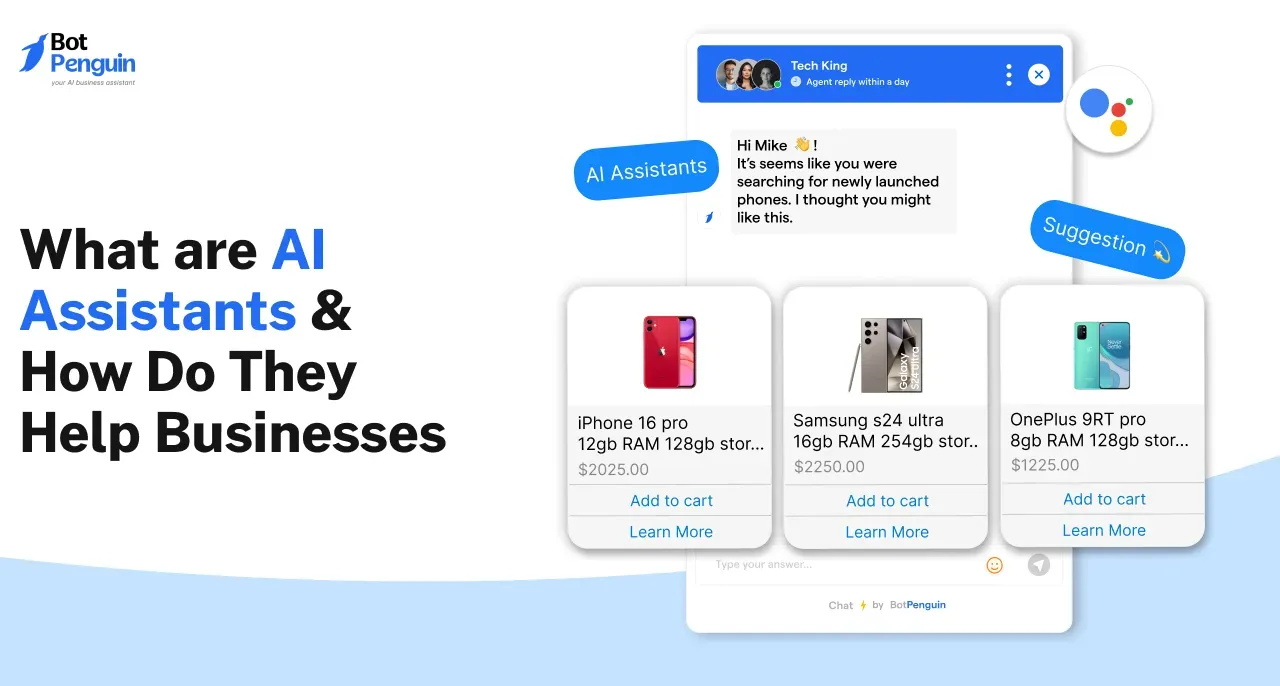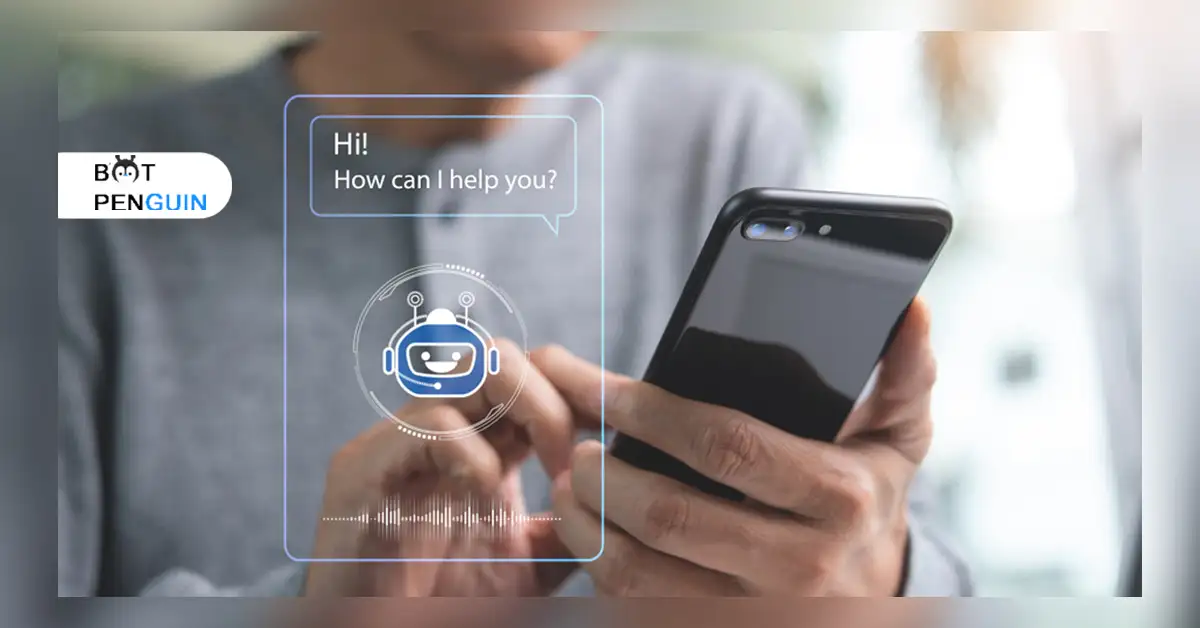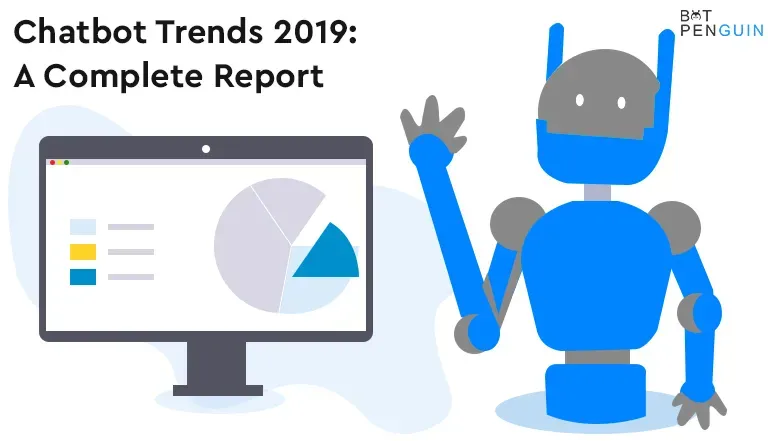Artificial intelligence (AI) has been rapidly evolving in recent years, and one of the most exciting developments is the rise of chatbots. Chatbots are computer programs that can simulate conversations with humans.
They are often used in customer service applications but can also be used for various other purposes, such as education, entertainment, and research.
One of the most advanced chatbots in the world is ChatGPT, a large language model chatbot developed by OpenAI.
It is trained on a massive dataset of text and code, and it can generate human-quality text, translate languages, write different kinds of creative content, and answer your questions in an informative way.
By 2025, AI is estimated to power 95% of customer interactions. (Source: Servion Global Solutions)
In this quest, we will explore the world of AI conversations with ChatGPT. We will learn how ChatGPT works and see how it can be used to create engaging and informative conversations.
We will also explore the ethical implications of AI conversations and discuss the future of this exciting technology.
What is ChatGPT?
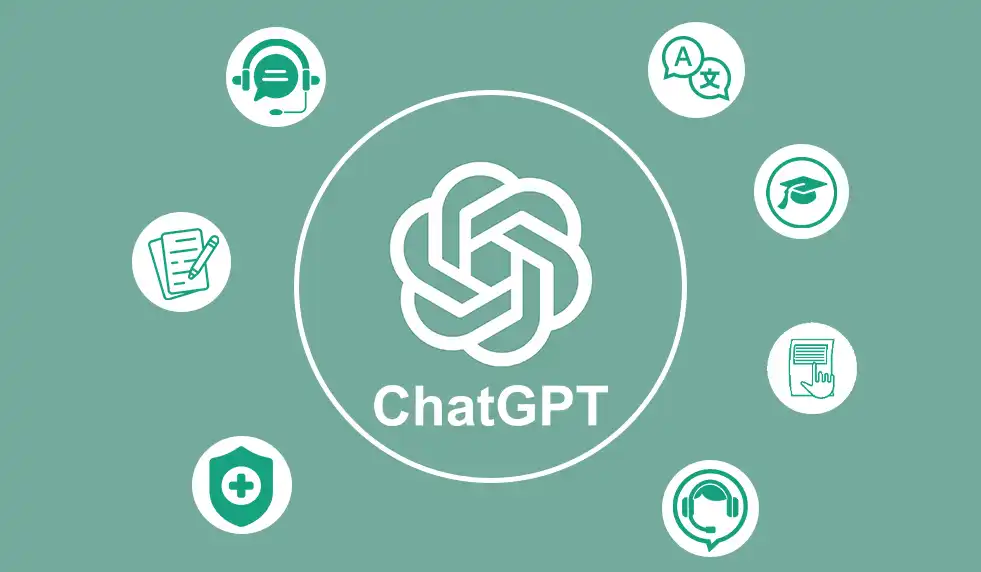
ChatGPT is an AI-powered solution that enables businesses to conduct conversations with their users in a human-like manner. Unlike traditional chatbots, ChatGPT uses natural language generation to generate context-aware and authentic responses.
The Rising Importance of AI-powered Conversations
With the world going digital, businesses are continually seeking ways to make user engagement more efficient and personalized. ChatGPT is at the forefront of this trend, offering a powerful solution catering to various applications.
Why ChatGPT?
ChatGPT offers a revolutionary way to interact with artificial intelligence.
It's designed to understand and generate human-like text, making it versatile for various tasks like answering questions, providing explanations, offering creative writing, and more.
Several benefits of ChatGPT make it an appealing choice for businesses looking to augment their user engagement strategies.
Let's explore them in detail.
Understanding the Benefits of ChatGPT
ChatGPT offers a range of benefits that make it a powerful and valuable tool for various applications. Look how.
- Reduces response time: ChatGPT can respond quickly to user inquiries, making it an efficient solution for providing support.
- Offers consistent user experience: ChatGPT offers a consistent user experience, unlike human agents with different expertise and communication skills.
- Scalable: ChatGPT can handle unlimited conversations simultaneously, making it a scalable solution for businesses of all sizes.
How ChatGPT Enhances User Engagement?
ChatGPT enhances user engagement through its natural language capabilities. It creates interactive and dynamic conversations. ChatGPT can enhance user engagement in several ways, including:
- Personalization: ChatGPT can use customer data to offer personalized recommendations and responses.
- 24/7 Support: ChatGPT enables businesses to offer round-the-clock support, ensuring users can access the information they need anytime.
- Enhancing customer satisfaction: ChatGPT offers an engaging and personalized experience that can significantly improve customer satisfaction.
Real-world Applications of ChatGPT
ChatGPT's versatile capabilities find practical use in numerous domains. It has numerous real-world applications, including:
- Customer service: ChatGPT can handle customer service inquiries, providing support quickly and efficiently.
- Sales: ChatGPT can be employed for lead generation, guiding prospects through the sales funnel.
- E-commerce: ChatGPT can recommend products or services based on a user's browsing or purchase history.
How does ChatGPT Work?
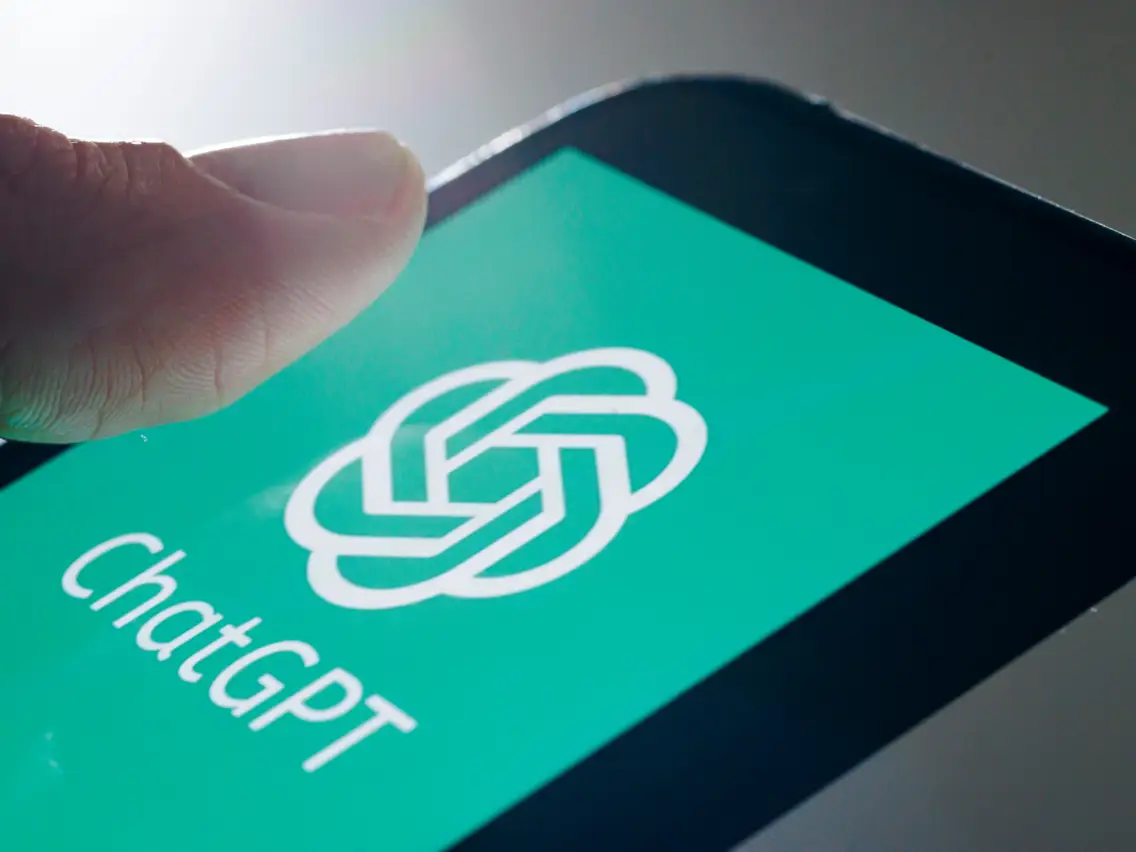
ChatGPT uses state-of-the-art natural language processing technology to generate human-like and context-aware responses.
Let's explore how it works in more detail.
The Underlying Technology Behind ChatGPT
ChatGPT is built on the foundations of machine learning and deep neural networks.
The neural network architecture is structurally similar to GPT-2, a pre-trained language model that has set new performance standards in natural language processing.
Neural Network Architecture and Training Process
The neural network architecture of ChatGPT consists of 12 transformer layers, each with 768 hidden units. The model has been trained on a large corpus of text data, enabling it to generate human-like responses.
Exploring the Capabilities and Limitations of ChatGPT
While ChatGPT is a highly capable tool, its capabilities are limited. One primary area for improvement is its inability to fully understand the nuances of human emotion and sentiment.
As a result, ChatGPT may occasionally generate responses that are tone-deaf or inappropriate.
ChatGPT and User Engagement
ChatGPT has emerged as a game-changer in enhancing user interactions with the rise of AI-powered conversations.
In this section, we will discover how ChatGPT can revolutionize user engagement and explore strategies for maximizing its potential.
Enhancing User Interactions with ChatGPT
ChatGPT takes user interactions to a new level by offering personalized and context-aware responses.
Here's how it does it:
- Conversational flow: ChatGPT engages users in natural conversations, mimicking human-like interactions and making users feel heard and understood.
- Contextual understanding: ChatGPT can capture the context of previous messages, allowing for seamless conversations that build upon previous interactions.
Strategies for Maximizing User Engagement
To maximize user engagement with ChatGPT, businesses can employ several strategies. Let's delve into strategies that will elevate your prowess to new heights.
Let's explore them:
- Utilize customer data: Leverage customer data to provide personalized recommendations and responses that align with user preferences and needs.
- Adaptive Messaging: Customize the tone and style of ChatGPT's responses to align with your brand voice and create a personalized user experience.
- Context-aware responses: Train ChatGPT to understand the context of user queries and generate relevant and meaningful responses.
- Sentiment analysis: Implement sentiment analysis to ensure ChatGPT's responses are sensitive to the emotions and sentiments expressed by users.
- Multi-turn conversations: Enable ChatGPT to handle multi-turn conversations where users can ask follow-up questions or provide additional context.
- Context retention: Improve user engagement by ensuring ChatGPT remembers previous interactions and can refer to them when needed.
Taking your first step towards the advanced integration isn't a tough hustle, especially when there is someone like BotPenguin, all set to serve your custom needs:
- Whitelabel ChatGPT
- Hire ChatGPT Developers
- Custom ChatGPT Plugins
- Hire Chatbot Developers
- Custom Chatbot Development
- ChatGPT Clone
- ChatGPT Consultant
Use Cases of ChatGPT
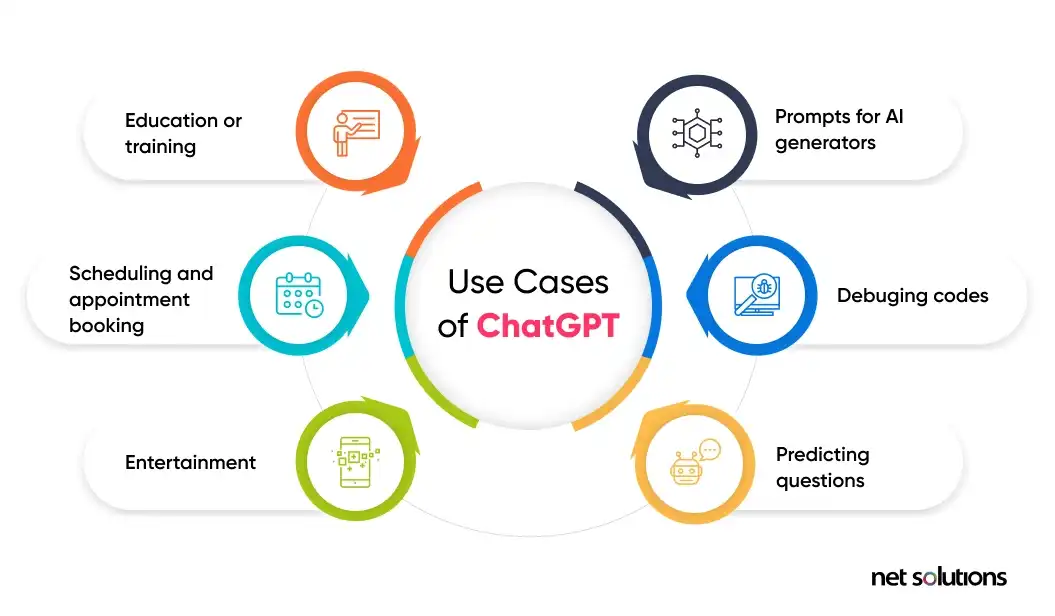
ChatGPT finds applications in various areas, showcasing its versatility and effectiveness in user engagement.
Let's explore the top use cases:
ChatGPT in Customer Support
- Instant assistance: ChatGPT can provide quick and accurate responses to customer queries, reducing the response time and enhancing customer satisfaction.
- 24/7 support: With ChatGPT, businesses can offer round-the-clock customer support, ensuring users can get assistance whenever needed.
ChatGPT for Virtual Assistants
- Personal virtual assistants: ChatGPT can act as virtual assistant, helping users with scheduling appointments, providing reminders, or managing to-do lists.
- Natural language understanding: ChatGPT's ability to understand natural language makes interactions with virtual assistants more intuitive and user-friendly.
ChatGPT for Content Creation and Curation
- Content generation: ChatGPT can assist creators by suggesting creative ideas, providing topic insights, or generating draft content.
- Content curation: ChatGPT can curate personalized content recommendations for users based on their preferences and browsing history.
ChatGPT in E-commerce and Sales
- Product recommendations: ChatGPT can analyze user preferences and recommend products or services that perfectly fit their needs.
- Sales assistance: Utilize ChatGPT to guide users through the sales funnel, addressing their concerns and helping them make informed purchasing decisions.
Suggested Reading:
Why ChatGPT Developers Are Essential to Your Business?
ChatGPT and Ethical Considerations
As we embrace the power of ChatGPT, it is crucial to address ethical considerations and ensure responsible AI usage.
By adopting these ethical practices, businesses can ensure that ChatGPT enhances user engagement while prioritizing transparency, fairness, and data privacy.
Let's explore some key considerations:
Ensuring Transparency and Fairness in AI Conversations
- Disclose AI usage: Inform users when interacting with ChatGPT, ensuring transparency and setting accurate expectations.
- Limitations and boundaries: Clearly define ChatGPT's capabilities and limitations to avoid misleading or potentially harmful interactions.
Addressing Biases and Potential Challenges
- Bias detection and mitigation: Regularly monitor ChatGPT's responses to identify and address any biases that may impact the user experience or reinforce harmful stereotypes.
- Feedback loops and continuous improvement: Develop mechanisms to gather user feedback and use it to improve ChatGPT's performance and mitigate potential challenges.
Privacy and Data Security Concerns
- Data protection measures: Implement robust data protection practices to safeguard user information and ensure compliance with privacy regulations.
- Anonymization: Anonymize user data used by ChatGPT to protect user privacy and prevent misuse of personal information.
Best Practices for Implementing ChatGPT
To achieve the optimal performance of ChatGPT, some best practices must be considered while integrating this technology with existing systems. Below are a few key considerations:
Choosing the Right ChatGPT Model and Configuration
- Consider the complexity of conversations you want to undertake before choosing a ChatGPT model.
- Configure the model according to your business needs while also ensuring scalability and flexibility.
Training and Fine-Tuning for Optimal Performance
- Train ChatGPT on a diverse dataset that reflects your target user base.
- Continuously fine-tune the model on new data sets to improve its performance.
Monitoring and Iterating for Continuous Improvement
- Track ChatGPT's performance through user feedback and business metrics.
- Make necessary changes to the model and configuration to improve its overall effectiveness.
Suggested Reading:
7 Factors to Consider Before You Hire ChatGPT Consultants
Future Trends in AI Conversations
ChatGPT technology is evolving rapidly, with innovations and possibilities being discovered daily.
Below are some future trends to keep an eye on:
Advances in ChatGPT Technology
- Enhanced Training Techniques: Continued improvement in training methodologies will likely lead to more advanced ChatGPT models that better understand the context.
- Emotions and Context Detection: ChatGPT will likely become more adept at detecting emotions and responding accordingly.
Integration of ChatGPT with Other AI Solutions
- Virtual Assistants: ChatGPT can be integrated with virtual assistants to handle complex conversations effectively.
- Machine Learning Models: Combining ChatGPT with machine learning models can help businesses improve customer support.
Potential Impact on Industries and Society
- Healthcare: ChatGPT can assist patients in booking appointments, remind them of their medication schedules and answer common healthcare queries.
- Education: ChatGPT can support students with online learning and help them get answers to their questions in real time.
Conclusion
ChatGPT represents an exciting new frontier in AI conversations that promise to revolutionize how we interact with machines.
With best practices in place, businesses can use ChatGPT's advanced personalization and context-awareness features to engage their users more effectively.
In the future, the potential for advances in ChatGPT technology and its integration with other AI solutions will open up even more possibilities for businesses and society.
The bottom line is – Chatgpt is here to stay, and embracing this technology is the way to go.
Frequently Asked Questions (FAQs)
How can ChatGPT be used in real-world applications?
ChatGPT has many practical applications, such as customer support chatbots, virtual assistants, content generation, and interactive storytelling. It can be integrated into various platforms, websites, and applications to provide conversational interfaces and enhance user experiences.
Can ChatGPT understand different languages?
While ChatGPT is primarily trained on English text data, it can understand and generate responses in multiple languages. However, its performance may vary depending on the language and the availability of training data in that language.
How does ChatGPT handle sensitive or inappropriate content?
ChatGPT is designed to follow ethical guidelines and avoid generating inappropriate or biased responses. However, it may occasionally produce off-topic responses or exhibit biased behavior. OpenAI employs safety measures and community feedback to improve the system and mitigate potential risks.
Can ChatGPT learn from user interactions and improve over time?
ChatGPT cannot learn from specific user interactions or remember past conversations. However, OpenAI actively researches ways to enable such capabilities while considering privacy and ethical concerns.
Is ChatGPT available for developers to use?
Yes, OpenAI provides an API that allows developers to integrate ChatGPT. The API provides programmatic access to the language model, enabling developers to build custom conversational experiences using ChatGPT's capabilities.
Can ChatGPT be fine-tuned for specific tasks?
Currently, OpenAI only supports fine-tuning of their base models rather than specifically for ChatGPT. However, using their datasets, developers can use the base models as a starting point and fine-tune them for specific tasks or domains.
How does ChatGPT handle ambiguous or unclear queries?
ChatGPT may need help with ambiguous or unclear queries, as it relies on the context and information provided in the conversation. Providing clear and specific queries or prompts to guide the model is essential to obtain more accurate responses.

